Food Safety at Home
Kitchen and Food Safety

Know Who to Trust for Reliable Health Information
Learn to identify trustworthy sources for important health and wellness information.

Food Package Dates
Are we throwing food away unnecessarily? Perhaps. If you use the dates stamped on food products as your guide, you might need to revisit your strategy. So, what do those numbers mean? Learn more.
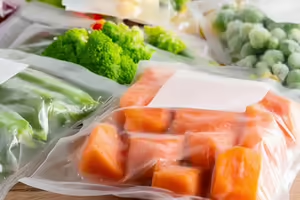
Freezing Foods
Freezing is one of the easiest ways to store food for extended periods. Learn how to do it properly.
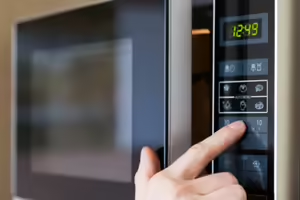
Microwave Safety
Microwaves are a great way to save time and energy while preserving your favorite foods’ flavor and key nutrients. To make great tasting foods using your microwave, follow these tips.
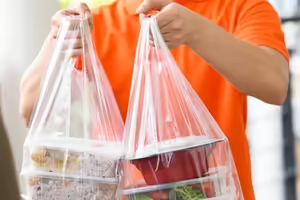
Carry Out Meal Safety
When it comes to food safety with takeout or grab-and-go meals, focus on three steps to keeping food safe: Clean, Cook, and Chill. Learn to do it correctly.
Disasters and Food Safety

Bleach Sanitizer DIY
Learn how to make disinfectant cleaner at home. Use it to sanitize surfaces such as tables, counters, floors, doorknobs, toilets, showers, faucets, and sinks.
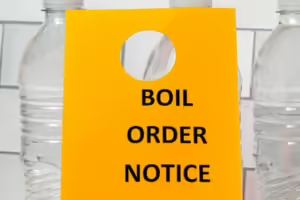
Boil Orders
Boil-water advisories are alerts from local water authorities advising you to boil tap water before drinking or using it to prevent waterborne infections. Learn more about it.
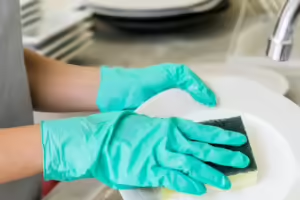
Clean and Sanitize the Kitchen
Learn how to maintain a clean and sanitized kitchen to prevent foodborne illness, protect your family's health, and ensure a safe and efficient environment.
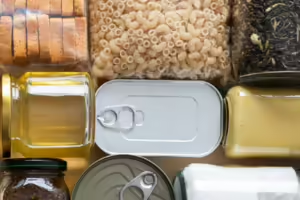
Emergency Food Supply
Access to safe food is a major concern in any emergency or natural disaster. When preparing an emergency food supply, remember these helpful tips to help reduce stress and ensure families have access to safe and healthful foods.
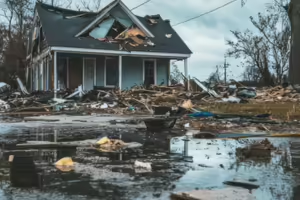
Floods and Food Safety
Flooding can affect food safety, so follow these steps to keep the family safe before and after flooding.
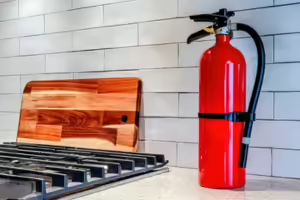
Kitchen Fire Extinguishers
Fire! Where’s the fire extinguisher? Knowing where a fire extinguisher is and how to use it is essential for food and kitchen safety.

Kitchen Fires
Home fires affect 2 million Americans annually, with nearly half caused by cooking equipment. Cleaning up and deciding what food to keep can be stressful. Generally, reusing food isn't safe. Learn more about preventing and handling kitchen fires.

Meals Without Electricity
During power outages, it's crucial to maintain good nutrition. Learn how to prepare nutritious meals even without refrigeration or electric appliances.
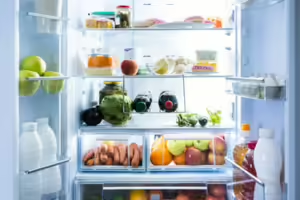
Power Outages
Long-term power outages lasting hours to weeks can be much more inconvenient than short-term outages lasting seconds or minutes. Find out what to do with perishable foods when long-term outages occur.
Commercial Food Safety
Produce and Garden Food Safety
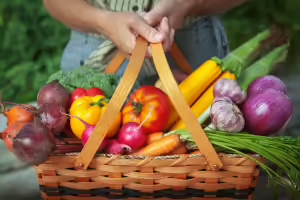
Garden Food Safety Tips
Fruits and vegetables are popular crops grown in community and home gardens. Fruits and vegetables eaten fresh without cooking should be managed with extra care to minimize contamination throughout the growing season and during harvesting.
Packing Facility Checklist
Growers can use our printable checklist before, during, and immediately after working with fresh produce at a packing facility to protect produce from possible contamination. Some items on this checklist may not apply to all facilities but may be helpful for planning purposes.
Post-Harvest Washing: Fresh Produce
Contaminated water will spread foodborne pathogens, which can infiltrate into the tissues of fresh produce. If growers choose to wash fresh produce, water must meet the no detectable Generic E. coli per 100 mL microbial quality. Get research takeaways at a glance.